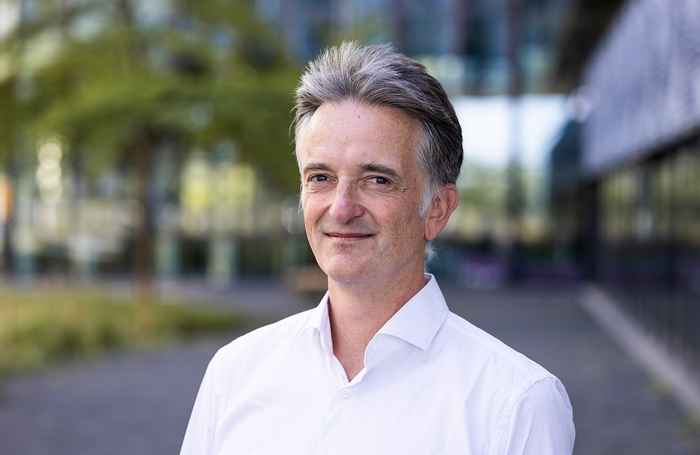Auke Pieter Colijn appointed professor of Experimental Techniques in Astroparticle Physics
21 August 2022

Colijn’s research focuses on the physics of elementary particles in the universe. In particular, he is interested in the mysterious dark matter. Researchers know that this type of matter, which occurs five times more than the ‘ordinary’ matter we know, exists in the universe – its gravity affects other objects – but what it consists of is still unclear. With the aid of major international collaborations such as the XENONnT experiment, a particle detector filled with the noble gas xenon, built deep down below the Gran Sasso mountain range in Italy, Colijn attempts to figure out which particles are responsible for the dark matter that we observe everywhere in the universe.
As a UvA professor, Colijn will in particular focus on the development and construction of a next generation of dark matter detectors, an order of magnitude more sensitive than the present experiments. Moreover, Colijn will investigate the possibilities to detect neutrinos that were emitted only a second after the Big Bang.
Over the past years, Colijn has taught almost all physics courses in the 1st year of the bachelor programme in Physics and Astronomy. His ambition is to now continue this for the 2nd year. Moreover, he is excited about teaching in the broad beta-gamma bachelor programme. There, he wants to keep spreading the word about physics, hoping to occasionally enthuse students to choose a major in physics and astronomy.
About Auke Pieter Colijn
Colijn obtained his PhD at the UvA in 1999, doing research on the lifetime of the so-called tau-lepton, using data of the LEP accelerator at CERN in Geneva. After his PhD he left for Chicago, where for two years he did research with the Fermilab particle accelerator. In 2002 Colijn returned to the Netherlands, originally as a postdoctoral researcher at Utrecht University, and from 2003 onwards as an assistant professor at UvA, where in 2010 he became an associate professor. In this period, among other things he carried out research using the ATLAS particle detector at CERN, also collaborating with industrial partners like ASML in order to apply the cooling techniques used in particle physics in industrial applications. Since 2010, using the XENON detectors, Colijn has been investigating dark matter; for example, he is the technical coordinator of the XENONnT experiment. At the Dutch national institute for subatomic physics, Nikhef, Colijn co-leads a cryo-lab where the properties of the noble gas xenon are investigated and where detection techniques for next generations of experiments are being developed.
In 2016, Colijn was appointed professor by special appointment in Experimental Astroparticle Physics at Utrecht University, for a period of five years. That appointment is now followed by his appointment as a full professor at UvA.